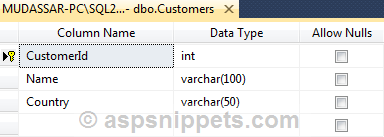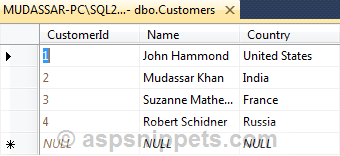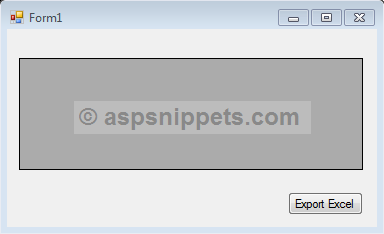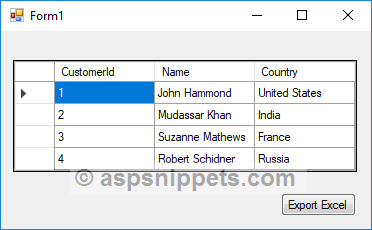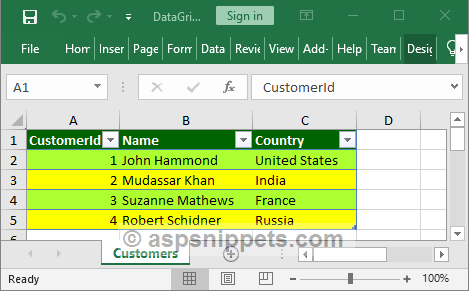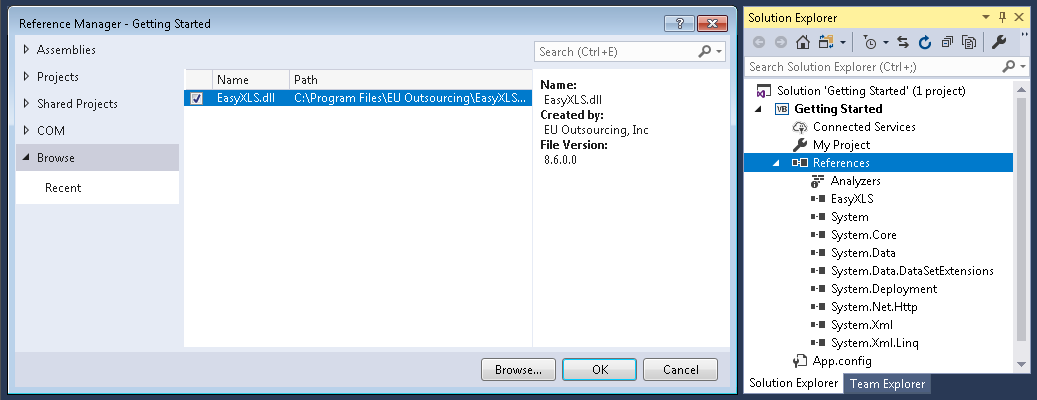Excel Method
This method is different than many you will see. Others use a loop to write each cell and write the cells with text data type.
This method creates an object array from a DataTable or DataGridView and then writes the array to Excel. This means I can write to Excel without a loop and retain data types.
I extracted this from my library and I think I changed it enough to work with this code only, but more minor tweaking might be necessary. If you get errors just let me know and I’ll correct them for you. Normally, I create an instance of my class and call these methods. If you would like to use my library then use this link to download it and if you need help just let me know.
https://zomp.co/Files.aspx?ID=zExcel
After copying the code to your solution you will use it like this.
In your button code add this and change the names to your controls.
WriteDataGrid("Sheet1", grid)
To open your file after exporting use this line
System.Diagnostics.Process.Start("The location and filename of your file")
In the WriteArray method you’ll want to change the line that saves the workbook to where you want to save it. Probably makes sense to add this as a parameter.
wb.SaveAs("C:MyWorkbook.xlsx")
Public Function WriteArray(Sheet As String, ByRef ObjectArray As Object(,)) As String
Try
Dim xl As Excel.Application = New Excel.Application
Dim wb As Excel.Workbook = xl.Workbooks.Add()
Dim ws As Excel.Worksheet = wb.Worksheets.Add()
ws.Name = Sheet
Dim range As Excel.Range = ws.Range("A1").Resize(ObjectArray.GetLength(0), ObjectArray.GetLength(1))
range.Value = ObjectArray
range = ws.Range("A1").Resize(1, ObjectArray.GetLength(1) - 1)
range.Interior.Color = RGB(0, 70, 132) 'Con-way Blue
range.Font.Color = RGB(Drawing.Color.White.R, Drawing.Color.White.G, Drawing.Color.White.B)
range.Font.Bold = True
range.WrapText = True
range.HorizontalAlignment = Excel.XlHAlign.xlHAlignCenter
range.VerticalAlignment = Excel.XlVAlign.xlVAlignCenter
range.Application.ActiveWindow.SplitColumn = 0
range.Application.ActiveWindow.SplitRow = 1
range.Application.ActiveWindow.FreezePanes = True
wb.SaveAs("C:MyWorkbook.xlsx")
wb.CLose()
xl.Quit()
xl = Nothing
wb = Nothing
ws = Nothing
range = Nothing
ReleaseComObject(xl)
ReleaseComObject(wb)
ReleaseComObject(ws)
ReleaseComObject(range)
Return ""
Catch ex As Exception
Return "WriteArray()" & Environment.NewLine & Environment.NewLine & ex.Message
End Try
End Function
Public Function WriteDataGrid(SheetName As String, ByRef dt As DataGridView) As String
Try
Dim l(dt.Rows.Count + 1, dt.Columns.Count) As Object
For c As Integer = 0 To dt.Columns.Count - 1
l(0, c) = dt.Columns(c).HeaderText
Next
For r As Integer = 1 To dt.Rows.Count
For c As Integer = 0 To dt.Columns.Count - 1
l(r, c) = dt.Rows(r - 1).Cells(c)
Next
Next
Dim errors As String = WriteArray(SheetName, l)
If errors <> "" Then
Return errors
End If
Return ""
Catch ex As Exception
Return "WriteDataGrid()" & Environment.NewLine & Environment.NewLine & ex.Message
End Try
End Function
Public Function WriteDataTable(SheetName As String, ByRef dt As DataTable) As String
Try
Dim l(dt.Rows.Count + 1, dt.Columns.Count) As Object
For c As Integer = 0 To dt.Columns.Count - 1
l(0, c) = dt.Columns(c).ColumnName
Next
For r As Integer = 1 To dt.Rows.Count
For c As Integer = 0 To dt.Columns.Count - 1
l(r, c) = dt.Rows(r - 1).Item(c)
Next
Next
Dim errors As String = WriteArray(SheetName, l)
If errors <> "" Then
Return errors
End If
Return ""
Catch ex As Exception
Return "WriteDataTable()" & Environment.NewLine & Environment.NewLine & ex.Message
End Try
End Function
I actually don’t use this method in my Database program because it’s a slow method when you have a lot of rows/columns. I instead create a CSV from the DataGridView. Writing to Excel with Excel Automation is only useful if you need to format the data and cells otherwise you should use CSV. You can use the code after the image for CSV export.
CSV Method
Private Sub DataGridToCSV(ByRef dt As DataGridView, Qualifier As String)
Dim TempDirectory As String = "A temp Directory"
System.IO.Directory.CreateDirectory(TempDirectory)
Dim oWrite As System.IO.StreamWriter
Dim file As String = System.IO.Path.GetRandomFileName & ".csv"
oWrite = IO.File.CreateText(TempDirectory & "" & file)
Dim CSV As StringBuilder = New StringBuilder()
Dim i As Integer = 1
Dim CSVHeader As StringBuilder = New StringBuilder()
For Each c As DataGridViewColumn In dt.Columns
If i = 1 Then
CSVHeader.Append(Qualifier & c.HeaderText.ToString() & Qualifier)
Else
CSVHeader.Append("," & Qualifier & c.HeaderText.ToString() & Qualifier)
End If
i += 1
Next
'CSV.AppendLine(CSVHeader.ToString())
oWrite.WriteLine(CSVHeader.ToString())
oWrite.Flush()
For r As Integer = 0 To dt.Rows.Count - 1
Dim CSVLine As StringBuilder = New StringBuilder()
Dim s As String = ""
For c As Integer = 0 To dt.Columns.Count - 1
If c = 0 Then
'CSVLine.Append(Qualifier & gridResults.Rows(r).Cells(c).Value.ToString() & Qualifier)
s = s & Qualifier & gridResults.Rows(r).Cells(c).Value.ToString() & Qualifier
Else
'CSVLine.Append("," & Qualifier & gridResults.Rows(r).Cells(c).Value.ToString() & Qualifier)
s = s & "," & Qualifier & gridResults.Rows(r).Cells(c).Value.ToString() & Qualifier
End If
Next
oWrite.WriteLine(s)
oWrite.Flush()
'CSV.AppendLine(CSVLine.ToString())
'CSVLine.Clear()
Next
'oWrite.Write(CSV.ToString())
oWrite.Close()
oWrite = Nothing
System.Diagnostics.Process.Start(TempDirectory & "" & file)
GC.Collect()
End Sub
I have an application which opens one of several excel templates, fills a datagrid view with
Excel Named Range data. Once the data is modified in the application I neet to save it to an excel spreadsheet. I currently have the following working:
1. This sub writes 2 columns of data (Ingredient) and (Result) from those named ranges and places them in the datagrid
Private Sub CboBoxTypeCofA_SelectedIndexChanged(ByVal sender As System.Object, ByVal e As System.EventArgs) Handles CboBoxTypeCofA.SelectedIndexChanged
WorkbookTemplate =
«»
CofABook = «»
CboBoxTypeCofA.Visible = False
Select Case CboBoxTypeCofA.SelectedItem
Case Is = «Nothing»
GoTo Nextline
‘ Msgbox will go here to require change the jump to nextline is temporary
Case Is = «Flax Seed Oil»
CofABook = «D:Flaxseedcofa_08.xls»
‘ Sets the name of the cofa template worksheet should be on a network mapped drive.
WorkbookTemplate = «D:Flaxseedtemplate.xls»
Case Is = «PS Shakes»
CofABook = «D:PSshakescofa_08.xls»
‘ Sets the name of the cofa template worksheet should be on a network mapped drive.
WorkbookTemplate = «D:PSshakestemplate.xls»
Case Is = «Zone Shakes»
CofABook = «D:Zoneshakescofa_08.xls»
WorkbookTemplate = «D:zoneshakestemplate.xls»
End Select
NextLine:
‘ this code opens the template worksheet and writes the CofA results found named range to the datagrid for the user to update.
connect = New System.Data.OleDb.OleDbConnection(«provider=Microsoft.Jet.OLEDB.4.0;» & «data source=» & WorkbookTemplate & «;Extended Properties=Excel 8.0;»)
adapter = New System.Data.OleDb.OleDbDataAdapter(«select * from [Ingredient]», connect)
connect.Open()
adapter.Fill(dataset)
Me.DataGridView1.DataSource = dataset.Tables(0)
adapter.Fill(dataset.Tables(0))
adapter = New System.Data.OleDb.OleDbDataAdapter(«select * from [Found]», connect)
adapter.Fill(dataset)
Me.DataGridView1.DataSource = dataset.Tables(0)
adapter.Fill(dataset.Tables(0))
connect.Close()
2. This code takes other named ranges (single data items) from the same workbook and places them in controls on the form for update.
oExcel = CreateObject(
«Excel.Application»)
‘ Create the template workbook object
oBook = oExcel.Workbooks.Open(WorkbookTemplate)
TxtProductName.Text = oBook.names(«Productname»).referstorange.value
TxtLotnum.Text = oBook.Names(«Lotnum»).RefersToRange.Value
TxtQtyShipped.Text = oBook.names(«Qtyshipped»).referstorange.value
OldYear = oBook.names(«Year»).referstorange.value
oExcel.workbooks.Close()
oExcel.Quit()
This code works and the only problem is that after running the code the excel application does not close.
Now I need to write the completed updates from the datagrid view and the other controls back into a workbook.
Ive been searching around but have not found the proper way to do this and how to kill the oexcel application in the code above.
Thanks
Wnewcomb
In this article I will explain with an example, how to export DataGridView data to Excel file with formatting i.e. Colors and Styles in Windows Forms (WinForms) Applications using C# and VB.Net.
DataGridView cannot be exported directly to Excel file and hence need to generate a DataTable and export the DataTable to Excel file.
The DataTable will be exported to a formatted Excel file using ClosedXml library which is a wrapper of OpenXml.
Database
I have made use of the following table Customers with the schema as follows.
I have already inserted few records in the table.
Note: You can download the database table SQL by clicking the download link below.
Download DocumentFormat.OpenXml and ClosedXml Libraries
You can download the libraries using the following download locations.
Note: The DLL files of both OpenXml and ClosedXml are present in the attached sample.
Form Controls
I have added a DataGridView and a Button to the Windows Form.
Namespaces
You will need to import the following namespaces.
C#
using System.IO;
using System.Data;
using ClosedXML.Excel;
using System.Data.SqlClient;
VB.Net
Imports System.IO
Imports System.Data
Imports ClosedXML.Excel
Imports System.Data.SqlClient
Populating DataGridView
Inside the Form Load event, the DataGridView is populated with records from Customers table.
C#
private void Form1_Load(object sender, EventArgs e)
{
this.BindDataGridView();
}
private void BindDataGridView()
{
string constring = @»Data Source=.SQL2014;Initial Catalog=AjaxSamples;Integrated Security=true»;
using (SqlConnection con = new SqlConnection(constring))
{
using (SqlCommand cmd = new SqlCommand(«SELECT * FROM Customers», con))
{
cmd.CommandType = CommandType.Text;
using (SqlDataAdapter sda = new SqlDataAdapter(cmd))
{
using (DataTable dt = new DataTable())
{
sda.Fill(dt);
dataGridView1.DataSource = dt;
}
}
}
}
}
VB.Net
Private Sub Form1_Load(sender As System.Object, e As System.EventArgs) Handles MyBase.Load
Me.BindDataGridView()
End Sub
Private Sub BindDataGridView()
Dim constring As String = «Data Source=.SQL2014;Initial Catalog=AjaxSamples;Integrated Security=true»
Using con As New SqlConnection(constring)
Using cmd As New SqlCommand(«SELECT * FROM Customers», con)
cmd.CommandType = CommandType.Text
Using sda As New SqlDataAdapter(cmd)
Using dt As New DataTable()
sda.Fill(dt)
dataGridView1.DataSource = dt
End Using
End Using
End Using
End Using
End Sub
Exporting DataGridView data to Excel with formatting
Inside the Button Click event handler, first a DataTable is created with columns same as that of the DataGridView and a loop is executed over the DataGridView rows and all the data is added to the DataTable.
Then a Workbook object is created to which the DataTable is added as Worksheet using the Add method which accepts DataTable and the name of the Sheet as parameters.
Once the DataTable is added as a Worksheet to the Workbook, the formatting is done by first setting the Header row background color and then applying background colors to the rows and the alternating rows of the Excel file.
Finally the WorkBook is saved to the specified location on the disk.
C#
private void btnExportExcel_Click(object sender, EventArgs e)
{
//Creating DataTable.
DataTable dt = new DataTable();
//Adding the Columns.
foreach (DataGridViewColumn column in dataGridView1.Columns)
{
dt.Columns.Add(column.HeaderText, column.ValueType);
}
//Adding the Rows.
foreach (DataGridViewRow row in dataGridView1.Rows)
{
dt.Rows.Add();
foreach (DataGridViewCell cell in row.Cells)
{
dt.Rows[dt.Rows.Count — 1][cell.ColumnIndex] = cell.Value.ToString();
}
}
//Exporting to Excel.
string folderPath = «C:\Excel\»;
if (!Directory.Exists(folderPath))
{
Directory.CreateDirectory(folderPath);
}
using (XLWorkbook wb = new XLWorkbook())
{
wb.Worksheets.Add(dt, «Customers»);
//Set the color of Header Row.
//A resembles First Column while C resembles Third column.
wb.Worksheet(1).Cells(«A1:C1»).Style.Fill.BackgroundColor = XLColor.DarkGreen;
for (int i = 1; i <= dt.Rows.Count; i++)
{
//A resembles First Column while C resembles Third column.
//Header row is at Position 1 and hence First row starts from Index 2.
string cellRange = string.Format(«A{0}:C{0}», i + 1);
if (i % 2 != 0)
{
wb.Worksheet(1).Cells(cellRange).Style.Fill.BackgroundColor = XLColor.GreenYellow;
}
else
{
wb.Worksheet(1).Cells(cellRange).Style.Fill.BackgroundColor = XLColor.Yellow;
}
}
//Adjust widths of Columns.
wb.Worksheet(1).Columns().AdjustToContents();
//Save the Excel file.
wb.SaveAs(folderPath + «DataGridViewExport.xlsx»);
}
}
VB.Net
Private Sub btnExportExcel_Click(sender As Object, e As EventArgs) Handles btnExportExcel.Click
‘Creating DataTable.
Dim dt As New DataTable()
‘Adding the Columns.
For Each column As DataGridViewColumn In dataGridView1.Columns
dt.Columns.Add(column.HeaderText, column.ValueType)
Next
‘Adding the Rows.
For Each row As DataGridViewRow In dataGridView1.Rows
dt.Rows.Add()
For Each cell As DataGridViewCell In row.Cells
dt.Rows(dt.Rows.Count — 1)(cell.ColumnIndex) = cell.Value.ToString()
Next
Next
‘Exporting to Excel.
Dim folderPath As String = «C:Excel»
If Not Directory.Exists(folderPath) Then
Directory.CreateDirectory(folderPath)
End If
Using wb As New XLWorkbook()
wb.Worksheets.Add(dt, «Customers»)
‘Set the color of Header Row.
‘A resembles First Column while C resembles Third column.
wb.Worksheet(1).Cells(«A1:C1»).Style.Fill.BackgroundColor = XLColor.DarkGreen
For i As Integer = 1 To dt.Rows.Count
‘A resembles First Column while C resembles Third column.
‘Header row is at Position 1 and hence First row starts from Index 2.
Dim cellRange As String = String.Format(«A{0}:C{0}», i + 1)
If i Mod 2 <> 0 Then
wb.Worksheet(1).Cells(cellRange).Style.Fill.BackgroundColor = XLColor.GreenYellow
Else
wb.Worksheet(1).Cells(cellRange).Style.Fill.BackgroundColor = XLColor.Yellow
End If
Next
‘Adjust widths of Columns.
wb.Worksheet(1).Columns().AdjustToContents()
‘Save the Excel file.
wb.SaveAs(folderPath & «DataGridViewExport.xlsx»)
End Using
End Sub
Screenshot
Downloads
Содержание
- How to export DataGridView to Excel file in C# and VB.NET
- Source code sample
- Step 1: Download and install EasyXLS Excel Library for .NET
- Step 2: Create a C# or VB.NET project
- Step 3: Include EasyXLS library into project
- Step 4: Run C# or VB.NET code that exports DataGridView to Excel
- Formatting cells
- See also:
- How to format Excel cells?
- How to use predefined cells format?
- Export DataGridView to XLSX, XLSB, XLSM and XLS files
- See also:
- How to export to XLSX file?
- How to export to XLSM file?
- How to export to XLSB file?
- How to export to XLS file?
- Export DataGridView to Excel file with multiple sheets
- See also:
- How to export to Excel file in C# and VB.NET?
- How to create multiple sheets?
- Export DataTable of DataGridView to Excel file
- See also:
- How to export DataTable to Excel file in C# and VB.NET?
- Getting started with EasyXLS Excel library
- How to export datagridview to excel using vb.net?
- 9 Answers 9
- How to Export DataGridView to Excel In VB.Net
- What is Visual Basic’s purpose?
- Steps How to Export DataGridView to Excel In VB.Net
- How to import Excel file to DataGridView in C# and VB.NET
- Source code sample
- Step 1: Download and install EasyXLS Excel Library for .NET
- Step 2: Create a C# or VB.NET project
- Step 3: Include EasyXLS library into project
- Step 4: Run C# or VB.NET code that imports Excel data to DataGridView
- Import Excel cell formatting to DataGridView
- Source code sample
- See also:
- Import Excel to GridView (Download open source code)
- How to format Excel cells?
- Import Excel file having one sheet to DataGridView
- Import Excel file having multiple sheets to DataGridView
- Import range of Excel cells to DataGridView
- VB.NET Save DataGridView to Excel with headers
- 2 answers
How to export DataGridView to Excel file in C# and VB.NET
EasyXLS™ library allows you to export a DataGridView to an Excel file. The exported data in cells can be formatted.
EasyXLS can be successfully used inclusively to export large Excel files having big volume of data with fast exporting time.
Table of contents
Source code sample
Step 1: Download and install EasyXLS Excel Library for .NET
To download the trial version of EasyXLS Excel Library, press the below button:
If you already own a license key, you may login and download EasyXLS from your account.
Step 2: Create a C# or VB.NET project
If don’t have a project, create one as ASP.NET web application, windows forms app, console application, class library or service.
Step 3: Include EasyXLS library into project
EasyXLS.dll must be added as reference to your project. EasyXLS.dll can be found after installing EasyXLS, in «Dot NET version» folder.
Step 4: Run C# or VB.NET code that exports DataGridView to Excel
The below example shows how to export DataGridView to Excel in C# and VB.NET from a winform windows application.
Formatting cells
EasyXLS™ enables you to format cells, rows and columns in order to set the fonts and colors.
See also:
How to format Excel cells?
How to use predefined cells format?
Export DataGridView to XLSX, XLSB, XLSM and XLS files
This code sample shows how to export a DataGridView to XLSX file. Similarly, you can export a DataGridView to XLS file using ExcelDocument. easy_WriteXLSFile_FromDataSet method or export DataGridView to XLSB file using ExcelDocument. easy_WriteXLSBFile_FromDataSet method.
See also:
How to export to XLSX file?
How to export to XLSM file?
How to export to XLSB file?
How to export to XLS file?
Export DataGridView to Excel file with multiple sheets
EasyXLS enables you to create multiple sheets for the Excel file and insert the DataGridView inside a specific sheet.
See also:
How to export to Excel file in C# and VB.NET?
How to create multiple sheets?
Export DataTable of DataGridView to Excel file
If the data source of the DataGridView is a DataTable, like in the above sample, the data can be also exported directly from the DataTable.
See also:
How to export DataTable to Excel file in C# and VB.NET?
Getting started with EasyXLS Excel library
To download the trial version of EasyXLS Excel Library, press the below button:
If you already own a license key, you may login and download EasyXLS from your account.
Источник
How to export datagridview to excel using vb.net?
I have a datagridview in vb.net that is filled up from the database. I’ve researched and I found out that there is no built in support to print directly from datagridview. I don’t want to use crystal report because I’m not familiar with it.
I’m planning to export it to excel to enable me to generate report from the datagridview.
Can you provide me ways to do this?
9 Answers 9
Code below creates Excel File and saves it in D: drive It uses Microsoft office 2007
FIRST ADD REFERRANCE (Microsoft office 12.0 object library ) to your project
Then Add code given bellow to the Export button click event-
Excel Method
This method is different than many you will see. Others use a loop to write each cell and write the cells with text data type.
This method creates an object array from a DataTable or DataGridView and then writes the array to Excel. This means I can write to Excel without a loop and retain data types.
I extracted this from my library and I think I changed it enough to work with this code only, but more minor tweaking might be necessary. If you get errors just let me know and I’ll correct them for you. Normally, I create an instance of my class and call these methods. If you would like to use my library then use this link to download it and if you need help just let me know.
https://zomp.co/Files.aspx?ID=zExcel
After copying the code to your solution you will use it like this.
In your button code add this and change the names to your controls.
To open your file after exporting use this line
System.Diagnostics.Process.Start(«The location and filename of your file»)
In the WriteArray method you’ll want to change the line that saves the workbook to where you want to save it. Probably makes sense to add this as a parameter.
I actually don’t use this method in my Database program because it’s a slow method when you have a lot of rows/columns. I instead create a CSV from the DataGridView. Writing to Excel with Excel Automation is only useful if you need to format the data and cells otherwise you should use CSV. You can use the code after the image for CSV export.
Источник
How to Export DataGridView to Excel In VB.Net
This tutorial is all about how to Export DataGridView Data to Excel in VB.Net. In this tutorial, you will expect that I will teach you everything you need to learn on how to Export DataGridView Data to excel using visual basic.net.
What is Visual Basic’s purpose?
The third-generation programming language was created to aid developers in the creation of Windows applications. It has a programming environment that allows programmers to write code in.exe or executable files. They can also utilize it to create in-house front-end solutions for interacting with huge databases. Because the language allows for continuing changes, you can keep coding and revising your work as needed.
However, there are some limits to the Microsoft Visual Basic download. If you want to make applications that take a long time to process, this software isn’t for you. That implies you won’t be able to use VB to create games or large apps because the system’s graphic interface requires a lot of memory and space. Furthermore, the language is limited to Microsoft and does not support other operating systems.
Please enable JavaScript
With this tutorial, it can answer the question raised in StackOverflow.
So let’s get started:
Steps How to Export DataGridView to Excel In VB.Net
Step 1: First, Open the Visual Basic, Select File on the menu, then click New and create a new project.
Step 2: Then a New Project Dialog will appear. You can rename your project, depending on what you like to name it. After that click OK.
Step 3: Design your form just like this one I’ve shown you below.
Drag a Datagridview and a Button from the toolbox.
Step 4: Add a reference to Microsoft Excel 12.0 Object Library, In the project menu click on Project – Add Reference – go to COM tab,
Add Microsoft Excel 12.0 Object Library
Step 5: After that, add the following references above the Public Class Form1 Line.
Step 6: Then add these following declarations below the Public Class Form1 line.
Step 7: Add this code to the form load event.
Step 8: Next, add this code to the export button.
Step 9: Finally, add the following code to save the excel file when closing the form.
Step 10: Click F5 to run your project.
Источник
How to import Excel file to DataGridView in C# and VB.NET
EasyXLS™ library allows you to import Excel data to DataGridView. The data can be imported from an Excel sheet or from the active Excel sheet. The entire sheet data or only data from ranges of cells can be imported.
EasyXLS can be successfully used to also import large Excel files having big volume of data with fast importing time.
Table of contents
Source code sample
Step 1: Download and install EasyXLS Excel Library for .NET
To download the trial version of EasyXLS Excel Library, press the below button:
If you already own a license key, you may login and download EasyXLS from your account.
Step 2: Create a C# or VB.NET project
If don’t have a project, create one as ASP.NET web application, windows forms app, console application, class library or service.
Step 3: Include EasyXLS library into project
EasyXLS.dll must be added as reference to your project. EasyXLS.dll can be found after installing EasyXLS, in «Dot NET version» folder.
Step 4: Run C# or VB.NET code that imports Excel data to DataGridView
The below example shows how to import Excel data to DataGridView in C# and VB.NET from a winform windows application.
Import Excel cell formatting to DataGridView
Importing also the cell formatting requires some changes to previous code in order to import not only data from the Excel file, but also the cell formatting styles. See below how the source code must be adjusted:
Source code sample
EasyXLS also offers some open source code that imports an Excel file to a GridView. The code shows how to import all cell data and formatting, conditional formatting and the charts.
See also:
Import Excel to GridView (Download open source code)
How to format Excel cells?
Import Excel file having one sheet to DataGridView
Importing the Excel file data to DataGridView, if the Excel file has only one sheet, is the easiest approach. The Excel data can be imported with one single line of code using:
— ExcelDocument. easy_ReadXLSXActiveSheet_AsDataSet method for XLSX file
— ExcelDocument. easy_ReadXLSBActiveSheet_AsDataSet method for XLSB file
— ExcelDocument. easy_ReadXLSActiveSheet_AsDataSet method for XLS file
The first code sample shows how to achieve this goal.
Import Excel file having multiple sheets to DataGridView
There are three approaches for importing data from an Excel file with multiple sheets.
I. Usually the first sheet is the active sheet inside an Excel file. If this is your case or if you are importing data from another active sheet use:
— ExcelDocument. easy_ReadXLSXActiveSheet_AsDataSet method for XLSX file
— ExcelDocument. easy_ReadXLSBActiveSheet_AsDataSet method for XLSB file
— ExcelDocument. easy_ReadXLSActiveSheet_AsDataSet method for XLS file
II. For importing data from an Excel sheet and the name of the sheet is known, EasyXLS recommends the use of:
— ExcelDocument. easy_ReadXLSXSheet_AsDataSet method for XLSX file
— ExcelDocument. easy_ReadXLSBSheet_AsDataSet method for XLSB file
— ExcelDocument. easy_ReadXLSSheet_AsDataSet method for XLS file
III. For importing data from an Excel sheet and the name of the sheet is not known, the first step is to find the sheet by reading the Excel file using:
— ExcelDocument.easy_LoadXLSXFile method for XLSX file
— ExcelDocument.easy_LoadXLSBFile method for XLSB file
— ExcelDocument.easy_LoadXLSFile method for XLS file
Then, import the sheet data in DataGridView using ExcelDocument. easy_ReadExcelWorksheet_AsDataSet method.
Import range of Excel cells to DataGridView
EasyXLS enables you to import Excel data to DataGridView either from the entire sheet or from a range of cells. Importing only a range of cells is a very useful option especially for large Excel files because it reduces the speed of the import process.
In order to import multiple cell ranges at once from Excel sheet, the range parameter must be passed to the method as union of ranges (multiple ranges separated by comma).
All the methods that allow importing Excel to DataSet have parameters that permit importing only ranges of cells.
Источник
I would like to export / Save DataGridView to Excel. The below code works but it does not export DGV headers.
Hi @jim brown ,
May I know whether your issue has been solved or not? Please let me know if you need further assistance.
2 answers
A better way is shown in the following code sample which uses a completely free NuGet package SpreadSheetLight which does not require Excel to be installed.
Is there a way to export with datagrid view colors and formatting. I mean exactly what i see in datagridview
Hi @jim brown ,
Here’s an example you can refer to.
Best Regards,
Xingyu Zhao
*
If the answer is helpful, please click «Accept Answer» and upvote it.
Note: Please follow the steps in our documentation to enable e-mail notifications if you want to receive the related email notification for this thread.
Источник

